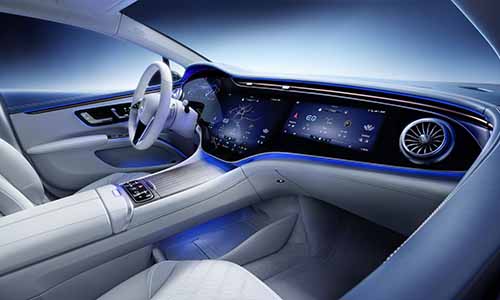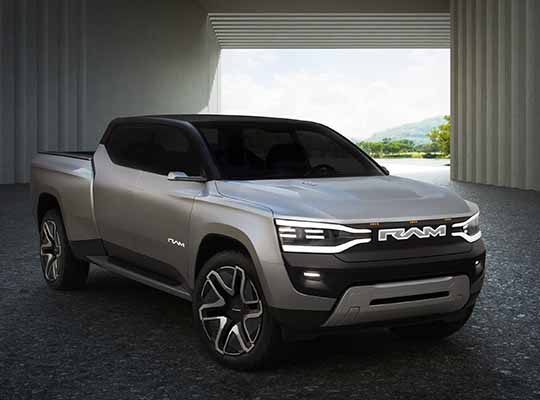The fast-paced advancements of technological innovations and the increasing demand for clean and safe mobility has significantly spiked the growth of the automotive infotainment industry in India and across the globe. While the global in-car infotainment market was worth around $21,410 million in 2020, it is expected to grow at a compound annual growth rate (CAGR) of 7.5 per cent to reach $37,530 million by 2028. The rise in the advancement of technological innovations is mostly fueled by the increasing demand for safety, comfort, and aesthetic features.
The in-car infotainment primarily comprises advanced features to provide drivers with value-added services like entertainment, information, connectivity and navigation. With the application of modern-age technologies, the automakers leverage the uses of audio/video interfaces, touch screens, keypads and other devices to provide drivers and passengers with entertainment and information. The entire system can facilitate Bluetooth, Wi-Fi connectivity, interactive voice recognition services, live media streaming, and smart technology for mobile integration.
While the pandemic disruptions resulted in considerable drop in automotive sales with insufficiency of raw materials, halt in production, closures of plants, etc., industry players became more focused on research & development (R&D) activities to bring out a significant change in in-car infotainment market. The infotainment segment can be classified into ADAS & Safety Systems, Body Control & Comfort System, Engine Management & Powertrain, Infotainment System, Communication Systems, Connected Services, Autonomous Driving, HMI Application, Biometrics System, and V2X System. These advanced features can be inducted into all sorts of smart transportations including passenger cars, light commercial vehicles, and heavy commercial vehicles.
Some of the latest trends to watch in the in-car infotainment sectors in India include:
Connected apps: Technological advancements have enabled connectivity among the applications of the various features of a smart car. From 3D downloadable maps to notifications on vehicle maintenance, the modern-day smart cars come with a series of functionalities that can be operated through mobile applications. Some of the latest connected technological application in the connected cars includes remote controlling of locking and un-locking or even start or stop of the engine.
Smart communications: In its endeavor to enable real-time information flow, automobile manufacturers have been working on innovations to make possible communication between nearby vehicles, thereby creating a connected infrastructure. The advanced features incorporate real-time traffic flow statistics, maps, infotainment, remote access to emergency services within seconds, detection of potholes and speed bumps, heavy rain, fog, slippery roads and communication of these messages to cars within a radius of three kilometers infotainment, remote access to emergency services within seconds, detect potholes and speed bumps, heavy rain, fog, slippery roads and communicate these messages to cars within a radius of three kilometers.
Voice assistance: With the application of technologies like artificial intelligence (AI) and machine learning (ML) smart car manufacturers are introducing customized voice-based assistance features to make the driving experiences better. Through this, basic activities within the car like adjusting the AC temperature, opening or closing sunroofs, setting navigation, starting or stopping engines, etc. can be managed through voice commands, like in Siri or Alexa.
Enhanced safety: While the automakers working on connecting the smart cars not only with the internet but also with other vehicles through continuous exchange of data, the short-range communications and peer-to-peer exchanges will enable the vehicles to sense the activities of other vehicles and walkers; thereby detecting potential threats. With the application of IoT, and communication between nearby vehicles, cars get alerted about speed, direction, road condition, traffic and pedestrian information. Modern-day smart cars also come with advanced preventive measures like timely automated brakes and driver alerts to avoid crashes.
About The Author :

Mr. Gaurav Kulshrestha, Head Marketing and Product Management, Pioneer India
Experienced executive with a demonstrated performance in consumer electronics industry, insurance sector and manufacturing industry. His major skill sets include company management, business planning, business alliances, new business development, and marketing management, market planning market analysis, strategic partnerships and pricing strategy. He is a strong business development professional with an educational qualification focused in risk management and IT from BIMTECH. He has a rich work experience of 24 years history in various leading brands. Some of the leading companies he has worked with are Carrion Aircon Ltd., ICICI Prudential Life Insurance, LG Electronics India, Electrolux, OSRAM and currently in Pioneer India Electronics. Mr Gaurav also has an expertise in Philately, Photography and Numismatics.













